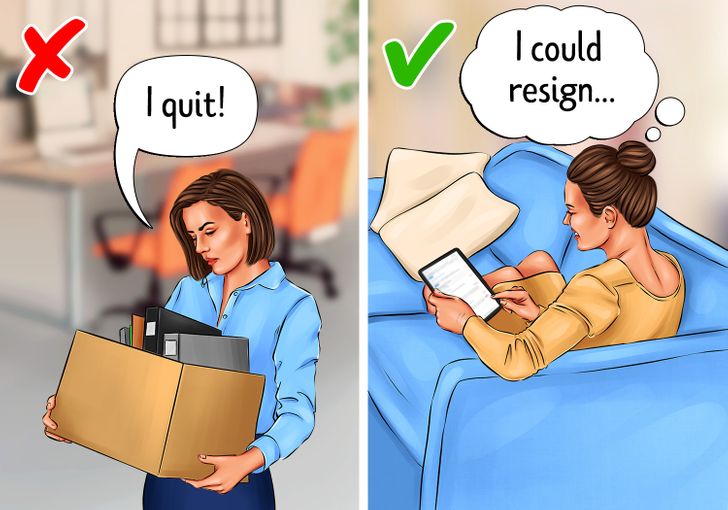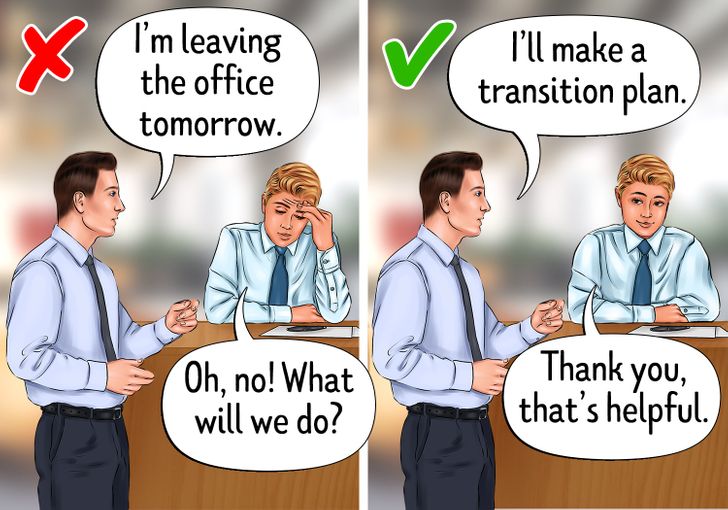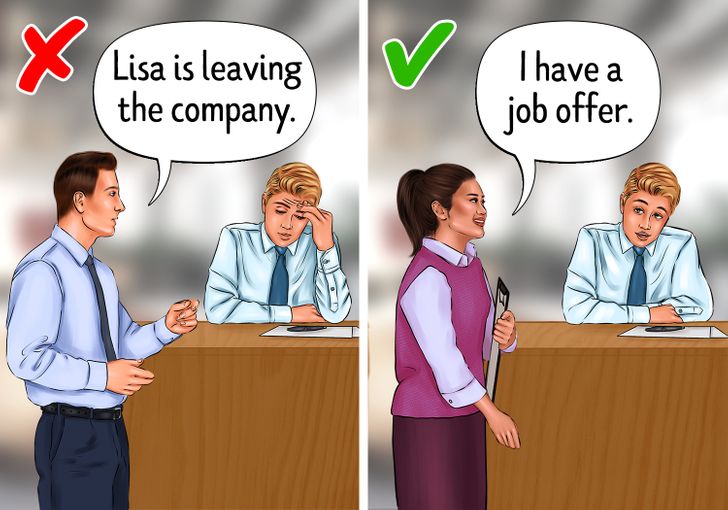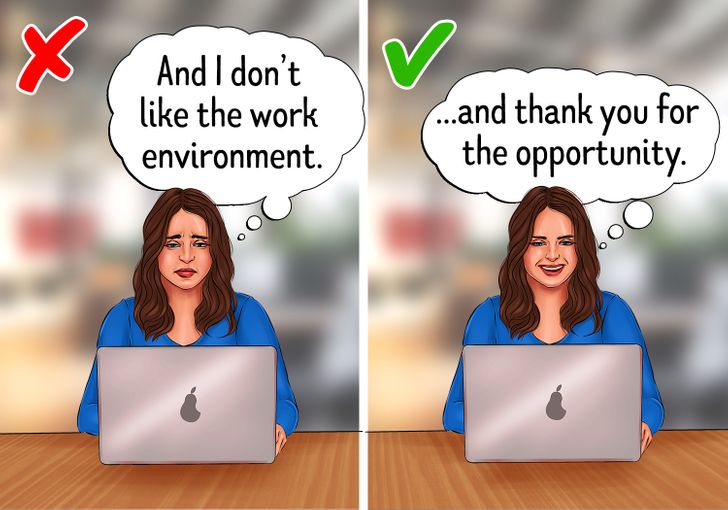How to Quit Your Job: 10 Tips

Resigning from a job may become necessary in order to accept new challenges and continue advancing in the working world. However, the way to carry out this process can help keep doors open and encourage good relationships with your former bosses and colleagues.
5-Minute Crafts has compiled some tips for how to leave a job in a professional manner and on the best terms.
1. Think long and hard before making the decision.

There are times when feelings such as frustration and stress can lead us to make a hasty decision. However, in working life, it’s not a good idea to get carried away by emotions.
If the idea of quitting has entered your head, evaluate whether it is the right time, analyze the opportunities offered by the job market, and reflect on the advantages and disadvantages of your current situation. If you already have an offer, try to make your exit on the best terms. This will make the transition much smoother and you will be able to take a network of contacts and recommendations with you.
2. Imagine possible counter-offers.

If you have a good relationship with your employer and have excelled in your work, he or she may try to convince you to stay. They might offer you a promotion or an extra salary or even more days off. However, you should think about returning thoroughly if you’ve already given your notice. Your boss might still consider you a flight risk and not fully trust you from now on.
Think about the reasons that have influenced your decision and evaluate whether these possible offers are sufficient reasons to change your mind. Having an open and honest conversation with your boss will make them respect you even more.
3. Give early notice and provide a transition plan.

In order to ensure a smooth and professional departure, give advance notice of resignation as indicated in the employment regulations or in your contract. If this is not specified, it is most common to do so at least 2 weeks in advance.
In addition, it is advisable to include a document detailing any outstanding issues, important deadlines, and any other information that will be useful to those who will replace you in your duties. This will demonstrate your commitment to your job and minimize problems within the organization or with clients.
4. Tell your boss first.

First of all, make sure that your boss is the first to know about your departure, and avoid having the information reach him or her through third parties. The latter may look unprofessional and even offensive.
If possible, make your decision in person and in a professional environment. Rehearse what you will say and anticipate some possible situations and how to handle them. For example, if the conversation becomes emotional or difficult, think about what to do in that case.
5. Focus on the positive aspects of your time in this position.

When discussing your departure with your boss, human resources, or even your co-workers, be sure to make positive comments and avoid complaining. Remember to maintain a professional attitude since your goal is to leave on good terms.
6. Submit your resignation on paper.

Even if you have spoken personally with your boss, it is important that you leave a written document to avoid confusion about your departure. Be concise and include the following information:
- The reason for your resignation
- How long your absence will be effective
- A brief thank you to the company for the job opportunity
It’s not necessary to go into the details of your decision. Remember that you can always say that it is due to personal reasons. It is also recommended to avoid mentioning negative aspects of the company.
7. Be honest, but don’t overdo it.

If you are leaving for a better salary or better working conditions, you may want to be cautious about expressing your reasons, or even reserve them for yourself. If the subject comes up in conversation, focus on other reasons why the change will be good for you.
Remember that your co-workers must remain in the position you are leaving, and this may cause them frustration and negative feelings.
8. Make the most of the exit interview.

Some companies provide you with an exit interview as part of the resignation process. The purpose of an exit interview is to gather information about an employee’s level of satisfaction and the reasons that influenced his or her decision. The data obtained can be useful in detecting internal problems or errors that affect other employees or customers.
Although this instance usually focuses on the company, it can be a good opportunity to exchange ideas and feedback with your supervisor and reflect on those aspects that could be improved. Always maintain a constructive tone.
9. Ask for references.

Before leaving your position, ask your boss for a letter of recommendation to prove your experience and skills for future job opportunities, even if you already have a secure offer.
At the same time, if you have a profile on LinkedIn, you can request validation of your skills easily and quickly if you have both as contacts. Nowadays, many companies opt for this type of digital tool to recruit new employees, and such information can be very useful.
10. Pick up your personal belongings outside working hours.

It’s to be expected that the departure of a team member will have an impact on his or her colleagues, so it’s always best to act prudently to avoid creating a negative atmosphere.
For this reason, it’s advisable to organize and collect your personal belongings during break times. It is also recommended to leave the company at the end of the working day.